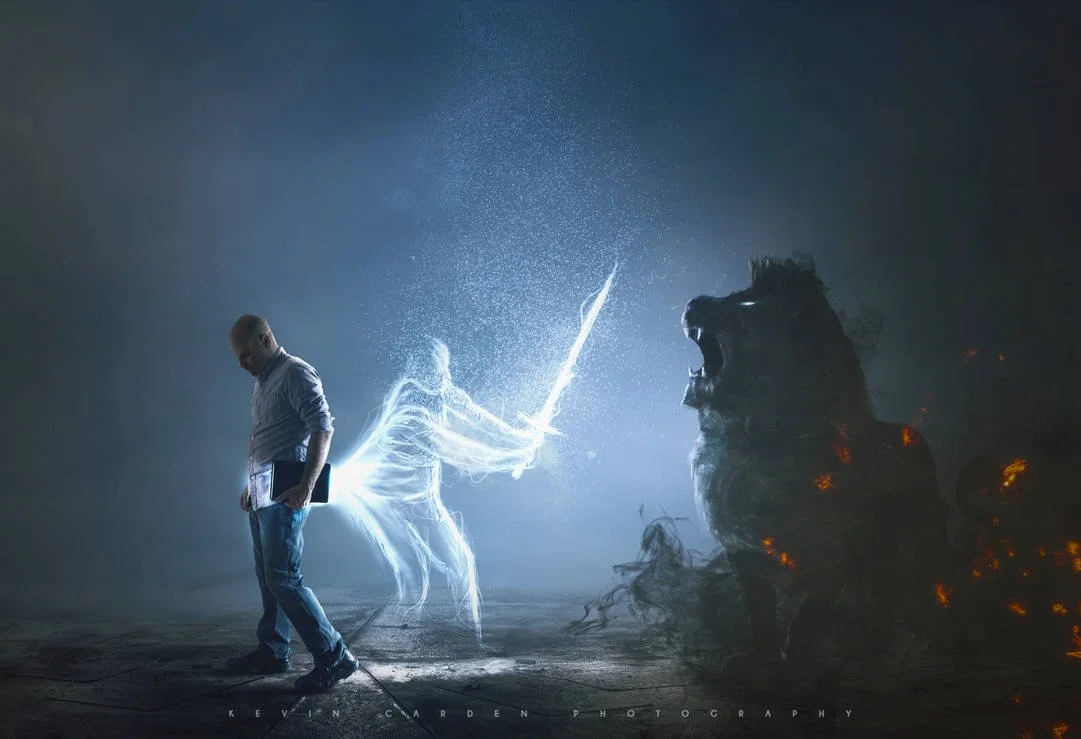Christian and Faithful enjoy a timely encounter with Evangelist, which as we read it, might strike us as strange. We are used to thinking about evangelists as those who get us started on the Way, perhaps introducing us to Christ, helping us to understand the benefits following Him might bring, and as being instrumental in our conversion. But here he is again, half way through the Pilgrim’s Progress. In part this is simply due to the fact that Evangelist is himself, first and foremost a Pilgrim. He too is on his way to the Celestial City, and so an evangelist will be journeying with those they have played a part in leading to Christ. But Bunyan’s point is more subtle. We have too compartmentalised a view of evangelism. We tie it too firmly and exclusively to the earliest stages of someone’s journey to Christ. But we’ve seen that Evangelist’s Gospel-ministry is much wider, rebuking Christian earlier for listening to Mr. Worldly-Wiseman, re-focusing him on the Narrow Way at key points, and now, encouraging him - and Faithful - in their pilgrimage. Evangelist keeps them in the Way, as well as starting them in it. It is s amuch more dynamic view of salvation, that understands we are being saved, as well as having been saved (e.g. I Cor.1:18).
And of course, his concern for their spiritual well-being doesn’t end once they become Pilgrims. He reminds them, somewhat ominously that they (and we) have many trials to go through if they are to enter the Kingdom of Heaven (Acts 14:22). This is no abstract exhortation… ‘You will soon come into a town that you will by and by see before you; and in that town you will be hardly beset with enemies, who will strain hard but they will kill you; and be you sure that one or both of you must seal the testimony which you hold with blood. But be you faithful unto death and the King will give you a crown of life’.
Evangelist encourages them to remain steadfast, to run in such a way as to gain the prize, to let the Kingdom be always before them. He calls them to courage and perseverance, reminding them that martyrdom will mean they will have ‘arrived at the Celestial City soonest’, and that they will escape many hardships that the other pilgrim(s) will have to endure. ‘Commit the keeping of your souls to God in well-doing, as unto a faithful Creator’. This is a very different message to the one we are accustomed to hearing from evangelists. Yet it is far more true to Scripture, and we would do well to remember it as we are sharing our faith with others. We must warn them of the struggles and hardships of following Chist, that the call to discipleship is a call to take up our cross and follow Him (Matt.16:24); it is to recognise that Christ is more to be valued than all the treasures or comforts of this world. Failure here is a dereliction of spiritual duty, and will cause significant problems for those we are seeking to introduce to Christ. Many have turned back because those speaking to them of Christ were simply not honest about the difficulties that lay ahead.
Earlier in the story, when Christian was benefitting from the counsel of more mature Christians and ministers, he was plagued by an impatience to get going. At the Interpreters House, and again at Beautiful Palace, he had to be restrained, bid to stay to learn and experience more that would be to his advantage. It is a sign of Christian’s maturing in his faith and discipleship that he thanks Evangelist, ‘but told him that he would have him speak further to them for their help the rest of the way’. Spiritual growth is evidenced by a developing desire for fellowship and teaching.
There is a pattern in Pilgrim’s Progress that is true to life. Before trial and tribulation there is often a time of especial encouragement. Before his battle with Apollyon, Christian enjoyed the blessings of the Beautiful Palace. Here again, before their entering Vanity Fair, there is - even in the wilderness - strong fellowship, rejoicing at the re-union with old friends, encouragement and exhortation from the Scriptures. They will need to draw on such benefits to endure the spiritual contest that lies ahead.
Questions to ponder:
How does thinking about Evangelist and his ministry change the way you think about the Gospel? …and about evangelism?
How would you encourage someone in the face of their martyrdom? Would you encourage them? …or would you commiserate with them?






